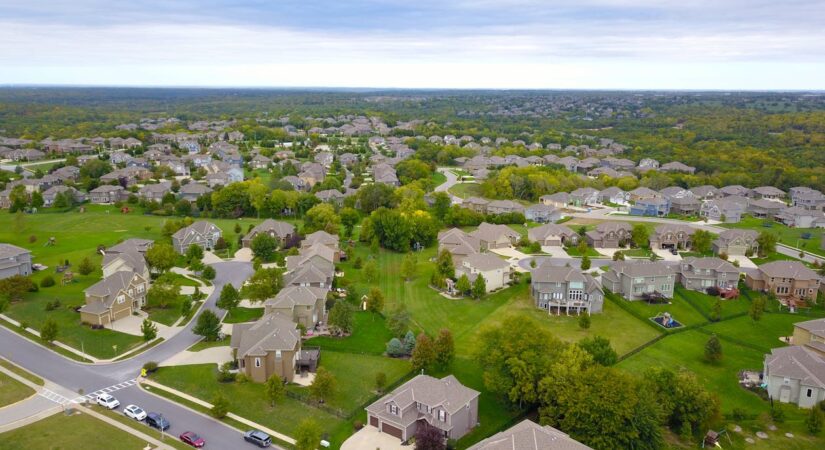As National Homelessness Week unfolds, efforts across Australia intensify to provide safe housing for women and children escaping family and domestic violence (FDV).
FDV has escalated to alarming levels in Australia, with a tragic statistic showing that a woman is killed by an intimate partner every 11 days, according to the Australian Institute of Health and Welfare (AIHW) for the 2022-23 period.
For survivors of FDV, the trauma of their experiences is compounded by the harsh reality of housing instability. Data from AIHW reveals that around 104,000 people who sought help from specialist homelessness services in 2022-23 had also endured FDV.
Sarah Wendt, a professor of social work at the University of Melbourne and a key investigator at the Centre for Excellence for The Elimination of Violence Against Women, identifies FDV as a leading cause of homelessness among women and children.
“Our society often requires these women and children to leave their homes to ensure their safety,” Ms. Wendt explained. “In many cases, the perpetrator remains in the home, forcing the victims to flee for their well-being.”
Women and children who have lived through FDV often face years of various forms of abuse—physical, financial, emotional, and psychological. This trauma lingers as they navigate a rental market that has grown increasingly competitive.
“When you’re struggling financially, emotionally, or psychologically, finding a new place to live becomes a monumental challenge,” Ms. Wendt noted.
The Search for Safety
While some FDV survivors may have the means to secure alternative housing or the support of friends and family, many turn to women’s shelters for crisis accommodation.
“Women’s shelters and non-government agencies work tirelessly to provide short-term or transitional housing to stabilize these women,” Ms. Wendt said. “However, these services are underfunded, meaning only a fraction of women receive this support.”
In response to the overwhelming need for specialized services, Launch Housing created Viv’s Place in 2022—Australia’s first long-term supported housing facility for women and children fleeing FDV. This Melbourne-based initiative, delivered in partnership with Uniting, donors, and the Victorian Government, offers 60 women and over 100 children a safe, long-term home with comprehensive support services.
Laura Mahoney, Executive Director of Homelessness Solutions and Impact at Launch Housing, emphasized the shortage of suitable, safe, and long-term housing for FDV survivors.
“While we aren’t a specialized family violence service, we encounter its impacts daily among the women, children, and young people we assist,” Ms. Mahoney stated. “These survivors need a secure place to call home, along with the support to rebuild their lives.”
Launch Housing operates six residential buildings offering either crisis support or long-term housing, collectively sheltering over 200 women and children each night. Yet, Ms. Mahoney highlighted the urgent need for further investment in effective housing solutions.
Expanding Housing Options
Both federal and state governments have pledged to increase housing and support funding for this vulnerable group, though starting from alarmingly low levels. Recently, the federal government announced funding for 720 new places in its Safe Places Emergency Accommodation Program, which provides emergency housing for women and children experiencing FDV.
Additionally, the federal government is investing billions into broader FDV support services, including $5,000 crisis payments to assist women in escaping abusive situations. While government funding is vital, the business community is also stepping up to contribute.
Housing All Australians (HAA), a volunteer-led organization, collaborates with businesses to support housing for vulnerable people. About four years ago, HAA helped establish a pop-up crisis accommodation center for women in South Melbourne by refurbishing a vacant aged care facility, providing free housing for vulnerable women through YWCA Housing.
“Over the past four years, we’ve helped stabilize the lives of over 130 women at no capital cost to the government,” said HAA co-founder Robert Pradolin. “We identify and repurpose empty buildings as short-term shelters to address immediate crises.”
Mr. Pradolin noted that more work is needed, with plans underway to refurbish additional rooms in the South Melbourne center and create more pop-up crisis accommodations in other locations.
John Piccolo, Executive Chairman of real estate group Woodards and Director of the Woodards Foundation, also emphasized the importance of supporting FDV survivors. The foundation’s Safe Places project, in collaboration with the Victorian government and the Salvation Army, provides six portable homes in Melbourne for women and children in need.
“Homelessness and domestic violence are the core issues addressed by the Woodards Foundation,” Mr. Piccolo said. “We’re committed to partnering with like-minded organizations to help those affected by these challenges and make a lasting impact.”
The foundation recently acquired a 12-bedroom property in Melbourne to expand its support for vulnerable women and children.
The Struggle for Stability
For long-term accommodation, some FDV survivors may secure public housing, but many must navigate the private rental market.
“The majority of these women will need to find a rental, seeking rent and bond assistance, and then face competition in the rental market,” Ms. Wendt said. “This can be especially difficult for single mothers without stable income, or those wishing to remain in familiar areas for their children.”
Leasing agent Tim Annett from Ray White shared his experience working with a family escaping FDV, helping them find a home after an extended search.
“Amanda and her family had been moving between hotels, with some support from charities,” Mr. Annett said. “After refining their housing needs and working through the application, they found the right home within a few weeks.”
Mr. Annett emphasized the importance of referral networks and collaboration with housing organizations to support families in need.
Despite the challenges, Ms. Wendt noted the resilience of FDV survivors in stabilizing their lives.
“Many women navigate these obstacles, find stability for themselves and their children, and deserve recognition for their strength and perseverance,” she said.
National Homelessness Week runs from August 5-11, with this year’s theme being “Homelessness Action Now.”



